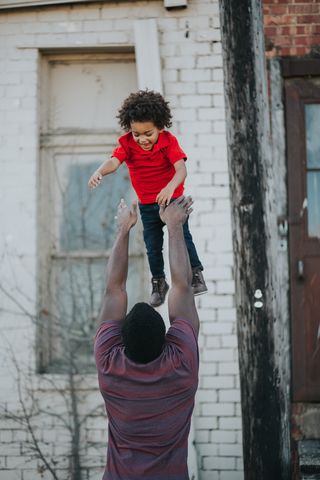Fear
Parents, It’s Going to Be Okay
We pay a high price when we live in fear of what could happen.
Posted February 15, 2020 Reviewed by Davia Sills
"This is going to be a good thing," said the editor. She had just offered me a blog at Psychology Today. "We need a pediatrician telling parents it's going to be OK, so they can stop worrying so much."
I murmured agreement, but she had taken me off guard. Could I actually do that? I thought of all my fears for my own children. I thought of my pediatric patients, who worried me. Was it going to be OK?
It took more than a year to think this through. I thought of all the beautiful things I've seen, and the rarer tragic ones in the families I care for. And I came to this conclusion: We have to live like it's going to be OK because we pay a high price if we don't.
I would love to tell you the world is safe.
If the world were safe, it would be easy to tell parents to stop worrying. Like all worried parents, I looked around for reasons to feel safe. I read books like Factfulness, chock-full of statistics about how the world is a safer, kinder place than it was when I was a child. That did make me feel better… for about five minutes.

Statistics don't really quench the anxiety we feel for our kids, because they don't feel real to us.
For decades now, the dominant definition of anxiety has been "an irrational fear" or "a cognitive distortion." Are parents irrational to worry that their kids could be unsafe? Are they irrational to think they will be blamed by a safety-conscious culture if their child is hurt?
Parents are worried about kids' safety in this world.
Based on the data, to fear that a stranger is lurking on every street corner with plans to abduct our children is irrational. It is important to put unrealistic fears aside and let our kids play outside. But that leaves some very real pressures that we can't ignore. Once we identify and let go of our irrational fears, how do we deal with those that are rational?
It is entirely rational to fear school shootings. Just the thought brings parents a visceral and animal terror. And while a school shooting that affects your child is statistically highly unlikely, there is nothing irrational in the idea that it could happen.
In fact, the irrational thought would be pretending that it can't happen to you. Of course, it could.
So how am I going to tell you that that's going to be OK? I'm not. Most kids grow up just fine, and some don't.
Parents are amazing in the way we show courage as we put that fear aside and stay calm for our kids. We keep sending them to school with a hug and a smile. Just as my parents grew up with nuclear attack drills and learned to hide under desks, our kids have active shooter drills at school. And we go on. Because that's what parents do.
We can't live in worry, because it's not helping our kids.
When parents approach the world with anxiety and are overprotective in response, kids learn to be afraid. In fact, our anxiety itself is contagious. Worried parents raise worried kids. We all need a solution to all that anxiety.
We can't always change our world, but we can change the way we live in it. Right now our culture tells parents that they need to keep their children safe from a dangerous world. I believe that's the wrong thing to emphasize.
Our job is to teach our children how to live in the world they are in. To live. Not to hide in fear. That means understanding that our world is safer than we think, and where the true dangers lie.
Please understand me. I am a pediatrician: I want you to do what makes sense to keep your kids safe. Store medicines and household cleaners out of reach, use seatbelts and bike helmets, and look both ways before you cross the street.
But don't take it too far. Don't protect your children so far that they begin to shrink in fear. When avoiding risk becomes our first goal, we are taking a terrible risk. We are risking our children's sense of their capability, their confidence, even their joy.
We have to live like it's going to be OK, because of the price we pay if we don't.
How can we live like it's going to be OK?
People have been telling parents to toughen up and stop worrying for years now, and it has not helped. We need something better than that. The best way I know to get free of anxiety is to take effective action.

Prioritize your child's autonomy. You see, the real risk our kids are facing is a lack of opportunities to build the skills they need to actually live in the world. If kids don't grow their autonomy and problem solving, because we are hovering too close to let them, it really will not be OK. If we teach our kids they need their parents to do the hard things for them, they won't be able to do hard things.
Consider the Failure to Launch phenomenon, and the generation of kids growing up without basic skills of adulthood. Instead of all the energy we spend getting caught up in the latest thing we need to protect our children from, let's spend some energy getting our kids out into their own worlds.
For instance, many parents love the toughness their kids are learning in competitive athletics. But consider this: Those same kids are often learning to ignore their own judgment in favor of their coaches'. I cannot consider it a valuable life skill for another 9-year-old to ignore her stress fracture, because her coach insists she continues to compete. Rather than activities rigidly controlled by adults, this child might learn more about her own strength from a week away from home at an outdoor summer camp.
In future articles, we'll explore aspects of our kids' lives, and why it's going to be OK.
©Alison Escalante M.D.




